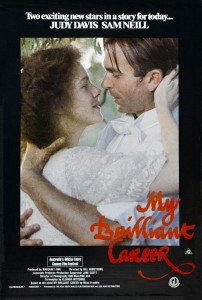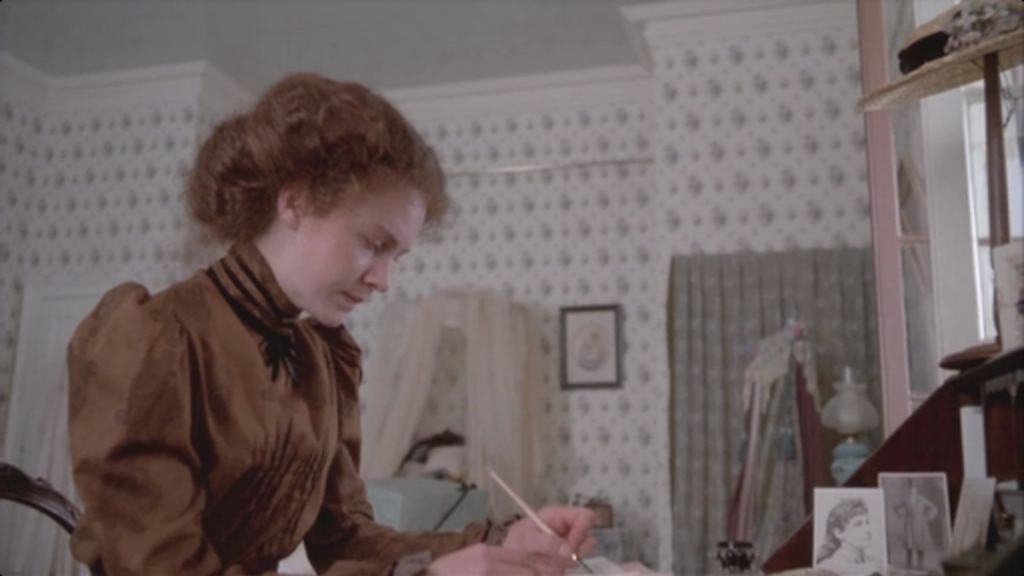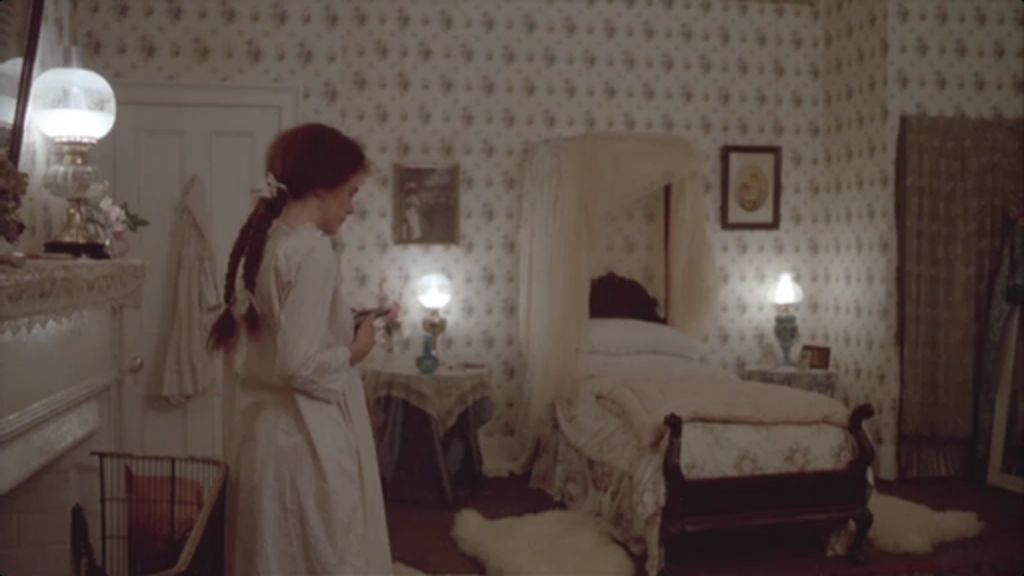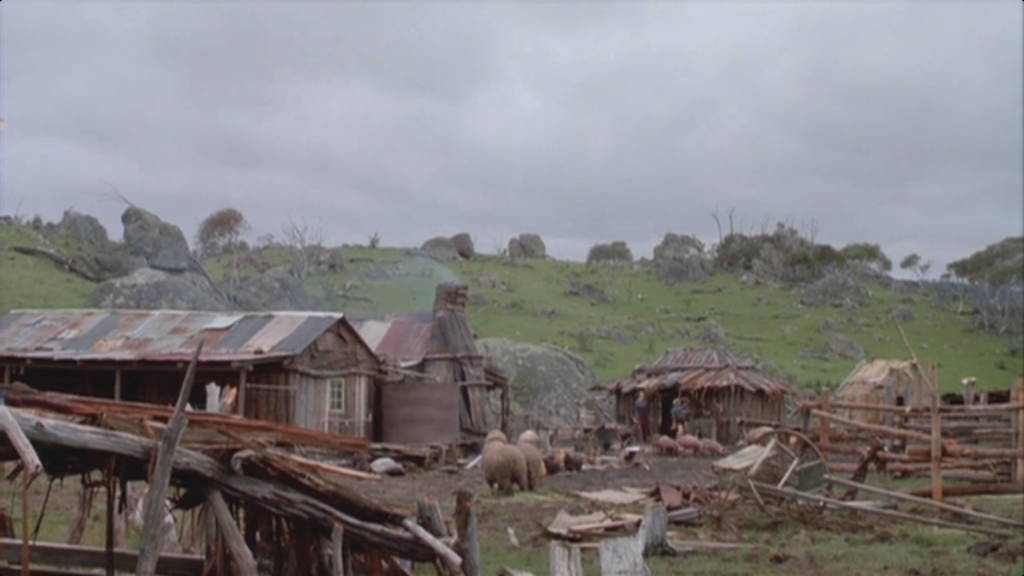|

Synopsis:
In 1890s Australia, a strong-willed young woman (Judy Davis) is determined to transcend her family’s hard-scrabble life and pursue a career in the arts — but when she becomes close friends with a handsome, wealthy acquaintance (Sam Neill), romantic tensions begin to complicate her goals.
|
|
Genres, Themes, Actors, and Directors:
- Australian Films
- Career-versus-Marriage<
- Feminism and Women’s Issues
- Historical Drama
- Romance
- Strong Females
- Writers
Response to Peary’s Review:
Peary writes that “Judy Davis is perfectly cast” in director Gillian Armstrong’s “popular adaptation of [an] autobiographical novel” by (Stella) Miles Franklin, about “an aspiring writer and avowed bachelorette” in early 20th century Australia who “sees how repressed married women in all classes of society [are], and realizes that in order to write, she must remain single” — which means “turning down a kind, handsome, understanding, playful man (Sam Neill), although they love each other”. Peary argues that “while praised for its feminism, [the] picture has rightly been criticized for ignoring the fact that [the central character, Sybylla Melvyn] was a lesbian”. Regardless, “what is positive is that Davis truly enjoys the company of women (and they benefit from her friendship)”; however, while these women “don’t realize their potential because they married”, they nonetheless “expect free-spirited Davis” — who “knows better” — to “follow their lead”.
Just as we can’t help questioning Jill Clayburgh’s ultimate romantic decisions in the final scenes of An Unmarried Woman (1978) (released the previous year), it remains somewhat challenging to watch Davis respectfully rebuffing Neill’s initial marriage proposal. (He’s so wealthy! So handsome! So playful! So PERFECT for her!) Indeed, the romantic purist in us desperately wants these two kindred spirits to be united. Yet it’s to Armstrong’s and screenwriter Eleanor Whitcombe’s credit that they maintain their film’s focus on its feminist “agenda”: evoking a particular historical era (the period sets are stellar) when to be married was truly much more of a “life sentence” for women than we can conceive of today. From our modern perspective, we wish youthful Davis would be truly radical and reconsider the terms of marriage altogether, thus having her cake and eating it, too. But her decisions are made within a very specific milieu: having seen so many females around her suffering — most notably her once-beautiful mother [Julia Blake], now burdened with too much work, a good-for-nothing husband, and far too many kids; and her quietly heart-broken aunt (Wendy Hughes), whose husband abandoned her — we ultimately admire her strength of will.
Redeeming Qualities and Moments:
- Judy Davis as Sybylla Melvyn (nominated by Peary as one of the Best Actresses of the Year in his Alternate Oscars)

- Fine cinematography

- Remarkably authentic period sets


Must See?
Yes, for Davis’s stand-out performance, and as a fine feature debut by a talented female director.
Categories
- Important Director
- Noteworthy Performance(s)
(Listed in 1001 Movies You Must See Before You Die)
Links:
|





One thought on “My Brilliant Career (1979)”
Must-see, for Davis’ performance.
The review pretty much sums things up nicely so I’ve little to add. Very little seems to happen in ‘MBC’. This is less a film than a mood piece with a strong central character coming very much to life in front of our eyes – and Davis is remarkable to watch. You admire her for her intelligence and sense of self, you care for her, and through her you easily understand how not-so-difficult it is choose your own route if that is at all possible – if that option is somehow within your reach and you desire it.
It’s a nicely produced film with lovely camerawork. The cast is admirable and rather credible in their individual roles. But Davis brings us in to her perhaps more than the others. She has a special magnetism as an actress – to me, that has been the case with every performance of hers I have seen. ‘MBC’ serves well as introduction to Davis’ particular presence on-screen – we spend nearly the entire film focused on her, and that’s a lovely thing indeed.